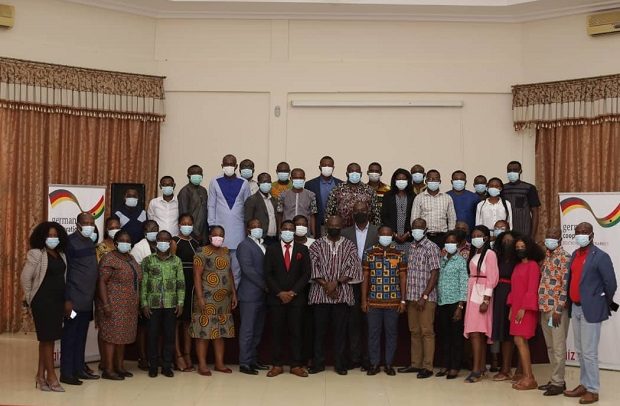Participants at the event
The first multi-stakeholder dialogue on Ghana’s Labour Migration Information System (LMIS), has been held in Koforidua, the Eastern Region.
The two-day event brought together 52 officials from state and non-state institutions as part of an ongoing collaboration between GIZ Programme Migration & Diaspora (PMD) working on behalf of the German government, and the Ministry of Employment and Labour Relations.
The collaboration is aimed at setting up a Labour Migration Information System in Ghana which forms part of the implementation of the National Labour Migration Policy.
The rationale for an Integrated Labour Migration Platform in Ghana was presented as well as a guided discussion on the Data and System Usage of Labour Department and other key stakeholders include the Ghana Immigration Service, the Attorney General’s Office and Ministry of Justice, the Ministry of Gender, Children and Social Protection; Ghana Employers Association, IOM Ghana, Ghana Statistical Service, and Trade Union Congress respectively.
Giving his remarks on behalf of the Chief Director of the Ministry of Employment and Labour Relations, Horen Quashigah thanked participants for their commitment towards the establishment of a data management system for labour migration for the country and reiterated the Ministry’s commitment to working with all stakeholders to ensure its success.
On his part, Head of Migration Projects in GIZ Ghana and Head of the Ghanaian-German Centre for Jobs, Migration, and Reintegration, Benjamin Woesten remarked, “A Labour Market information system anywhere is critical to the success of better engaging and supporting the inclusion of and proper management of labour migration information. We should be able to have a “one-stop-shop” for information related to labour migration no matter which aspect of it we are dealing with – whether it’s labour issues, legal issues, psychosocial issues, immigration issues, business, etc. Migration statistics or not, the policy will be made; but policies that are anchored on statistics leads to better policymaking and better decision making.”
As part of the ongoing collaboration, there will be a second Multi-Stakeholder Dialogue on the Labour Migration Information System in the future where a final report will be validated by the stakeholders.
By Jamila Akweley Okertchiri


